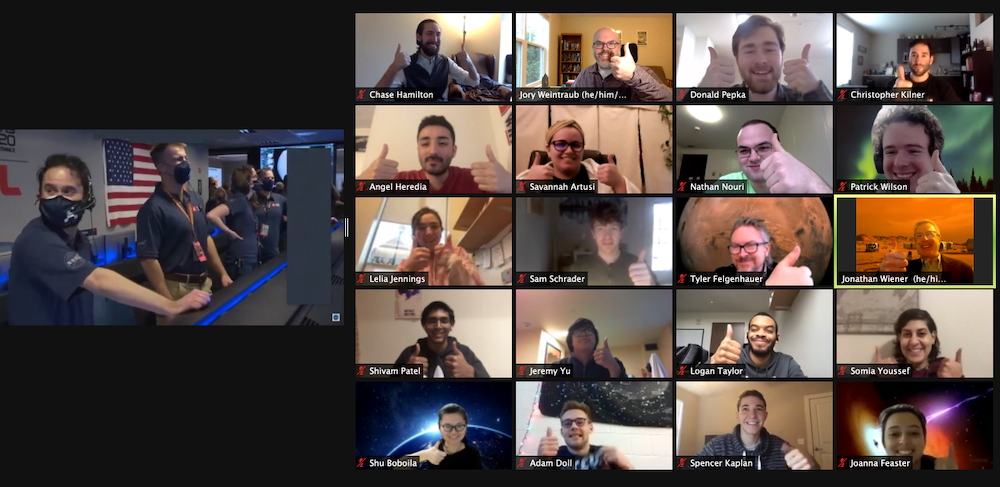Spencer Kaplan

One thing I’ve learned is how to lead a team while very much being a part of it, instead of just being on top of it. That’s been a novel experience and I think entirely related to the core of an interdisciplinary collaborative project.
Degree
Public Policy and Political Science ’21Project Team
This whole adventure started during my sophomore year. I saw on the Duke Science & Society website that they were having a series of dialogues over dinner, one of which was hosted by Professor Jonathan Wiener about Mars and space. I wasn’t able to go that night, but I set up a meeting with Professor Wiener afterward. He said to me, “Spencer, what do you want to do with your life?” I responded, “Well, I want to write the Constitution for Mars.”
He was really surprised, and we started talking about this idea of doing more “space stuff” at Duke. Professor Wiener ended up creating a Law School reading course called the “Laws of Mars,” which was a half credit course where Law students would meet once a month to discuss readings. Ultimately, he hired me as a research assistant to help create the syllabus, which was a great experience.
At the same time, there was an idea bouncing around about how we could expand our nascent space effort. Bass Connections was mentioned a few times, and then Professor Wiener and Chase Hamilton put in a concerted effort to draft a proposal for a project team. Since I already did so much work with him on this topic, Professor Wiener brought me into the leadership. I’m very fortunate to be working with some unbelievable people. The other leaders on the team (Professor Wiener, Chase Hamilton, Tyler Felgenhauer, Jory Weintraub, Dan Buckland, and Somia Youssef) are amazing.

Co-leading this team was really good preparation for the House Course that I’m teaching. I gained a lot of experience preparing for classes, identifying guest speakers, and working directly with students. It’s really fun to be able to participate and share my passion for space with a bunch of other students who are also incredibly passionate about it.
While most leadership settings are very hierarchical, the Bass Connections program is highly collaborative. Accordingly, I’ve learned how to lead a team while very much being a part of it, instead of just being on top of it. That’s been a very novel experience, and it’s think entirely related to the core of such an interdisciplinary, collaborative project.
Honestly, one of the biggest challenges is just picking out what content to cover because there’s so much to talk about. We pick the most important lessons that we need to explore, and we structure them into modules. Each student is assigned a stakeholder for one larger topic.
For example, in a module about habitation and humanity, some students might be assigned future Martian settlers, and some might be assigned commercial companies like SpaceX. Then, they will research the topic from those perspectives. Afterward, we’ll talk about our reflections on these big questions and the students’ experiences during the research process. It’s been rewarding to see how our students have risen to the challenge and dove head-first into such complex questions.
This Bass Connections project has been really powerful as a convening force for many students at Duke interested in space and Mars. A natural outgrowth of this was the Duke Space Initiative. We’re trying to create a clearinghouse of resources related to space at Duke so that in the future, students can use it to make Program II majors or find research opportunities with professors. We’re also meeting with faculty and administrators to get them more interested in space. I’m not sure that a lot of this would have been possible without Bass Connections assembling everybody in an organized way. For anyone who wants to get involved, definitely reach out because we really need to get younger people involved in space.
April 2021
